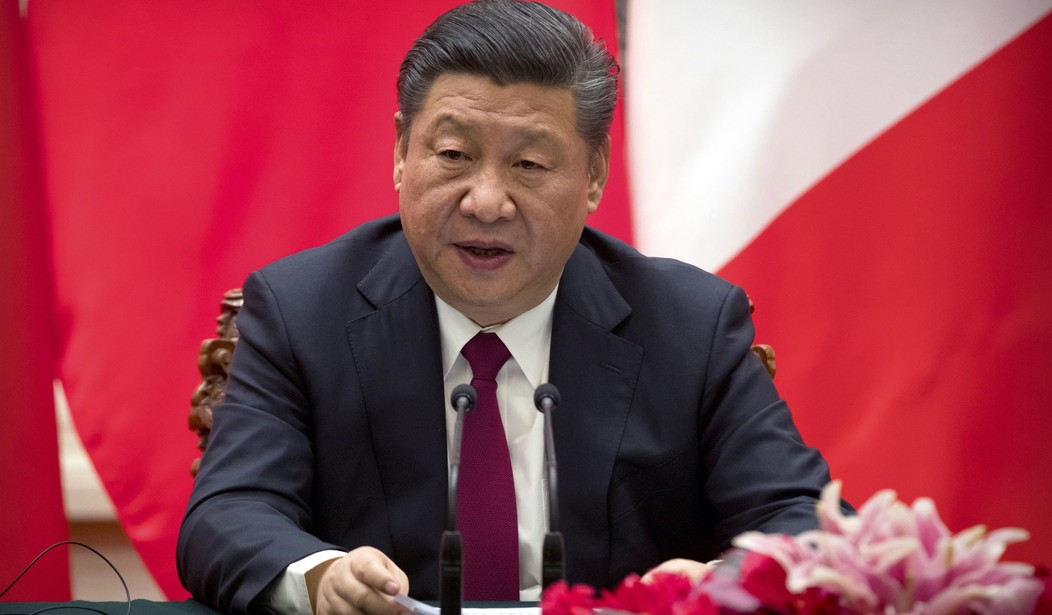For the last five years, Chinese President Xi Jinping has methodically acquired additional positions of authority within China's government.
Xi is this century's most powerful Chinese leader. His power matches that of modernizer Deng Xiaoping and approaches that possessed by Chairman Mao Zedong.
So prepare for Emperor Xi, a high-tech 21st century monarch clothed in presidential garb, draped in Communist Party propaganda and supported by the globe's second largest GDP.
Last week, China's state-run Xinhua news service -- which works for Xi-- reported that his handpicked Central Committee will consider removing constitutional restrictions that limit the president and vice-president to two consecutive terms.
Changing the constitution sets legal conditions for one man rule without term limits. Xi could reign until 2040.
Zhou dynasty emperors invoked The Mandate of Heaven to justify their absolute monarchy. European royalists had their Divine Right of Kings. In the 21st century, the Central Committee Rubber Stamp Mandate satisfies Emperor Xi.
As it is, Xi already possesses ultimate decision-making power in China. He is President of China and Secretary-General of the Chinese Communist Party. In 2016, he succeeded in obtaining the title "core leader" from the CCP. That title went beyond mere presidential political authority. Xi's "thought" provided ideological guidance. To Chinese ears the title echoed the political poetry hallowing Mao.
In my view, becoming chairman of the Central Military Commission was his biggest name-plate acquisition. Running the CMC gave him an unusually strong grip on China's military. In 2017, he shrank the CMC to seven seats. Xi loyalists filled the other six seats.
Is Xi on a personal power trip? Yes. He used a highly publicized anti-corruption campaign to purge his political opponents and remove some anti-Xi officers in the military.
Recommended
However, something more than the usual Stalin-Hitler-Saddam wannabe motivation is at work in China.
China has a Great Dilemma. Its savvy Communists know the value of a competitive market economy. At the same time they demand dictatorial control over what Adam Smith called "the invisible hand" of individuals engaged in free enterprise. Free enterprise might lead to calls for political freedom.
Two conflicting policies authored by Deng Xiaoping embody this Great Dilemma: his "Opening and Reform" program and his Four Cardinal Principles.
The Four Cardinal Principles enshrine CCP control -- China must "uphold" the socialist path, the "democratic" dictatorship, CCP leadership, and follow Mao's thought, etcetera. It's fossilized Marxism insisting on party unity.
Opening and Reform, however, promoted interdependent trade among nations, permitted foreign investment and ultimately liberalized the Chinese economy.
It worked. China's peculiar Communists know empirically their semi-free, slightly less corrupt but remarkably productive market economy gives them immense economic power and domestic political sway. Economic power has led to regional military power and international influence.
For over three decades China's Communist leaders have sought to maintain domestic stability while simultaneously pursuing these conflicting policies.
Twice since 1949, the CCP has experienced great disunity. Mao's obscene Cultural Revolution wreaked havoc on the country. The second era of disunity followed the June 4, 1989, massacre in Beijing's Tiananmen Square.
In 1989, China's economic reforms were giving the people a taste of prosperity. In Tiananmen Square, the CCP heard free market-spurred calls for political reform. One group made a foam and papier-mache statue they called the Goddess of Democracy.
Deng ordered Peoples Liberation Army tanks to attack the demonstrators; the PLA complied and killed at least 2,000 people.
Tiananmen is still a lurking tiger. The government still forbids discussing the massacre. Communist cyber cops patrol the internet, identifying and arresting citizens discussing the incident.
Xi and his cohort know the Communist dictatorship still lacks legitimacy. They have decided to gamble that investing power in one man for at least two more uninterrupted decades will eliminate any future domestic demands for genuine democracy. During that same period, China will become a world power superseding the declining United States.

























Join the conversation as a VIP Member